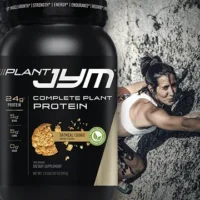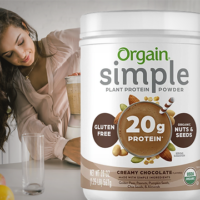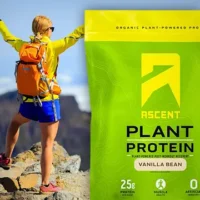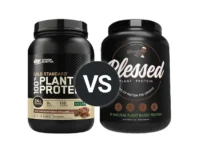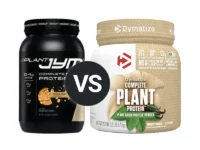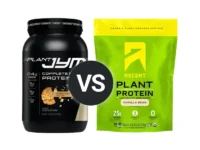Knowledge BaseYou're Questions Answered
Is plant protein powder a complete protein?
Plant protein powder is a popular alternative to animal-based proteins, especially among vegetarians, vegans, and those with dairy allergies or intolerances. While it's valued for being allergen-friendly and sustainably sourced, a key nutritional concern is whether it provides all the essential amino acids needed for human health—i.e., whether it's a complete protein.
What Is a Complete Protein?
A complete protein contains all nine essential amino acids in adequate proportions that the body cannot synthesize on its own. These amino acids are crucial for functions such as muscle repair, enzyme production, immune support, and hormone regulation1. Animal-based proteins (e.g., whey, egg, meat) are naturally complete, but not all plant-based sources meet this criterion individually.
Are All Plant Proteins Complete?
Most single-source plant proteins are considered incomplete because they lack or are low in one or more essential amino acids. However, there are notable exceptions:
- Soy Protein: A complete plant protein, rich in all essential amino acids2.
- Quinoa and Amaranth: Less commonly used in powders but naturally complete.
- Hemp Protein: Often marketed as complete, though it is slightly lower in lysine and may not be as amino-acid dense as animal proteins3.
Blended Plant Protein Powders
To overcome the limitations of incomplete proteins, many plant protein powders combine multiple sources—such as pea, rice, hemp, chia, or pumpkin seed proteins—to form a complete amino acid profile. For example, pea protein is rich in lysine but low in methionine, while rice protein is the opposite. When combined, they complement each other and yield a complete protein profile suitable for muscle growth and repair4.
Bioavailability and Digestibility
While completeness refers to amino acid composition, another important factor is bioavailability—how well the body digests and absorbs the protein. Most plant proteins have slightly lower digestibility scores compared to animal proteins, though many modern formulations have improved in this regard by using isolates or fermentation-enhanced processes.
Conclusion
In summary, not all plant protein powders are complete on their own. Soy, and to some extent hemp and quinoa-based powders, are exceptions. However, many commercially available plant protein powders achieve completeness by blending complementary sources. When choosing a plant protein, look for blends labeled as "complete protein" or with clear information about their amino acid profile. These products can provide a nutritionally robust alternative to animal-based proteins.
- WHO/FAO/UNU Expert Consultation. (2007). Protein and amino acid requirements in human nutrition. World Health Organization Technical Report Series, 935.
- Messina, M., & Messina, V. (2010). The role of soy in vegetarian diets. Nutrients, 2(8), 855–888.
- House, J. D., Neufeld, J., & Leson, G. (2010). Evaluating the quality of protein from hemp seed (Cannabis sativa L.) products through the use of the protein digestibility-corrected amino acid score method. Journal of Agricultural and Food Chemistry, 58(22), 11801–11807.
- Young, V. R., & Pellett, P. L. (1994). Plant proteins in relation to human protein and amino acid nutrition. American Journal of Clinical Nutrition, 59(5 Suppl), 1203S–1212S.
Related Questions
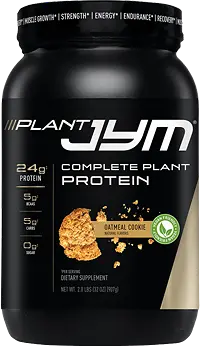
Your Answer
We are a participant in the Amazon Services LLC Associates Program, an affiliate advertising program designed to provide a means for us to earn fees by linking to Amazon.com and affiliated sites.

